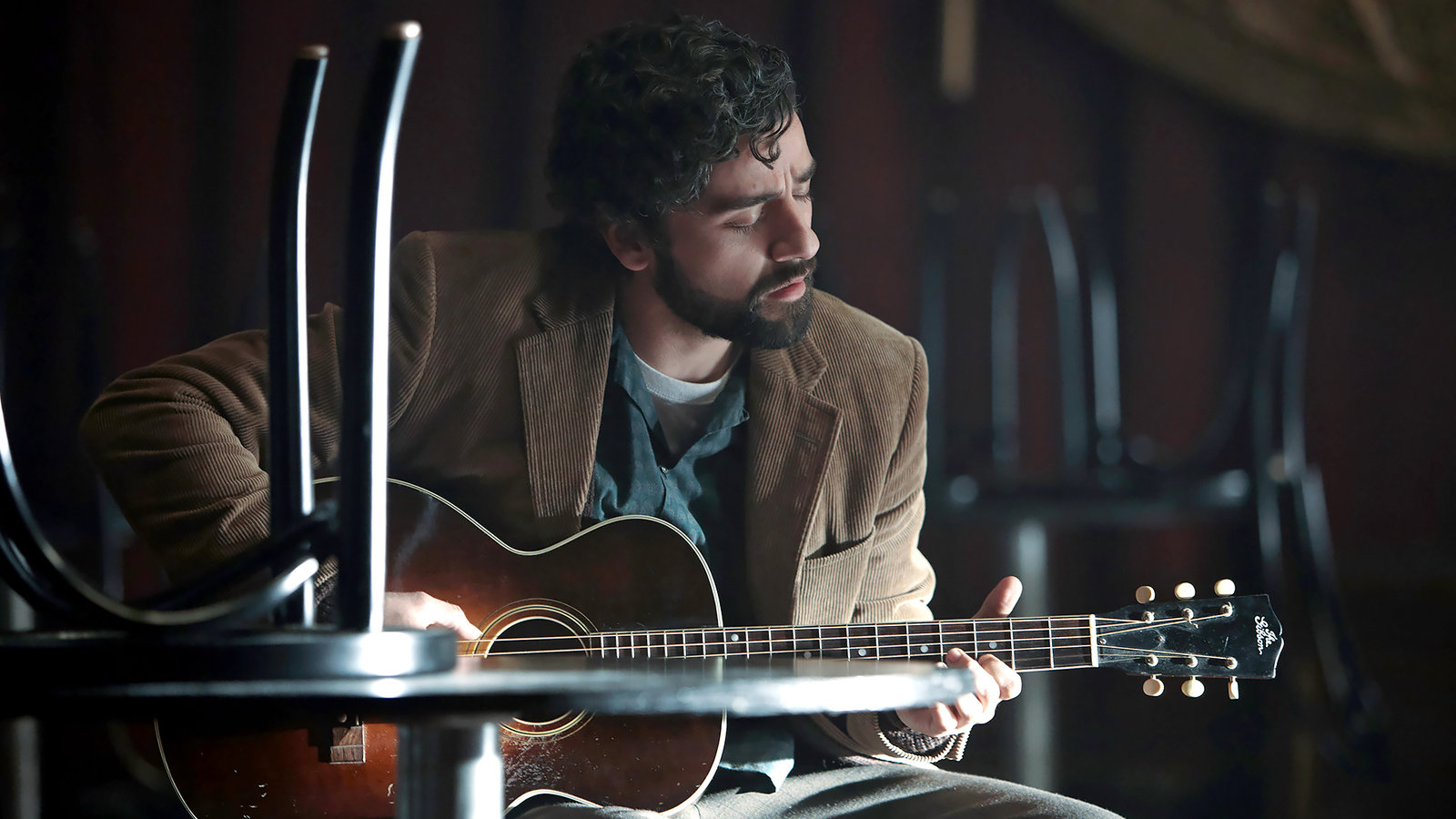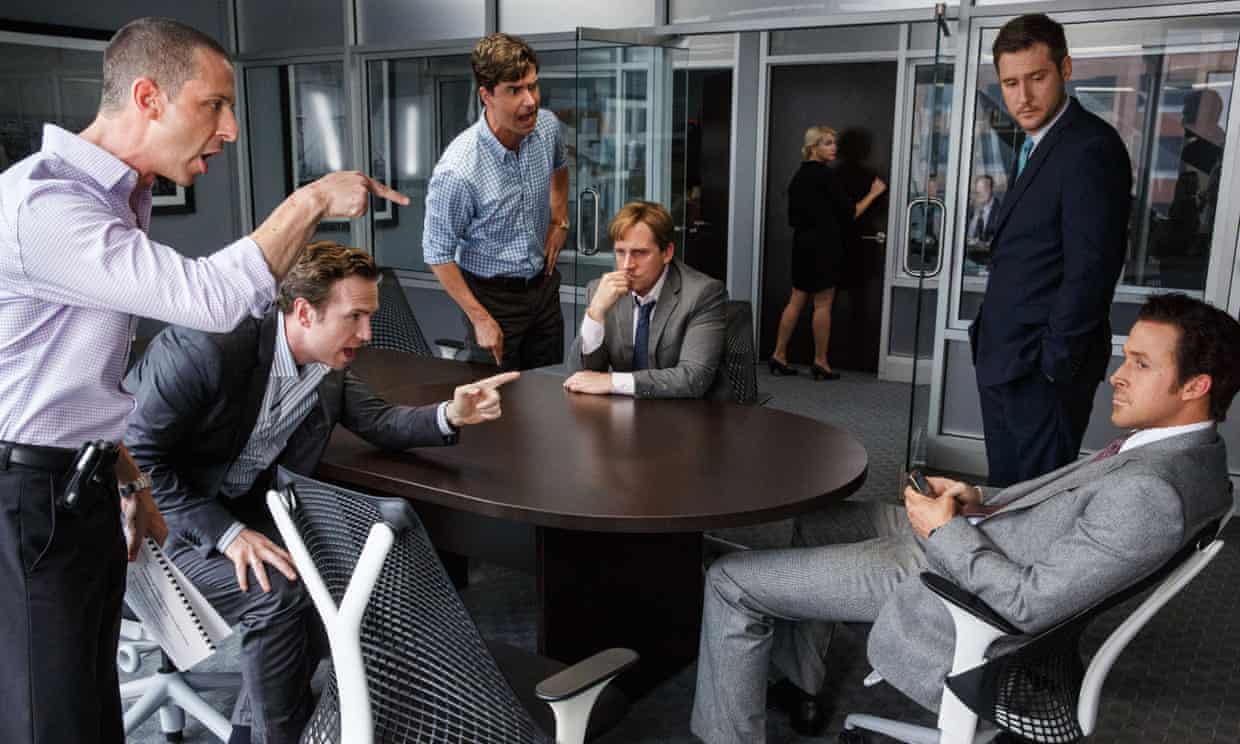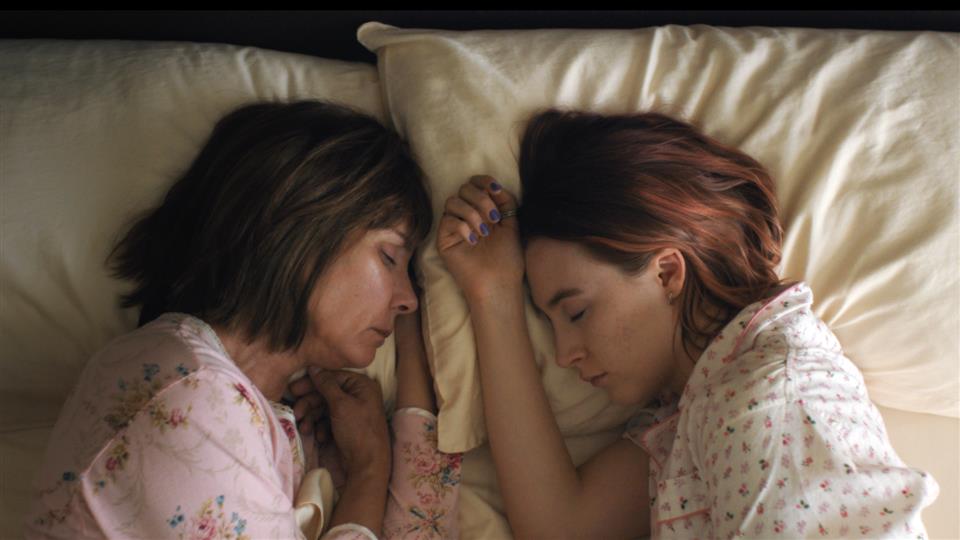We, your Film Section Co-editors, have assembled a totally and completely objective top ten best films of the 2010s list. While we theoretically believe that movie-goers can, and should, form their own personal canons of great cinema, we are also comfortable with you using our humble list to feel better about your own refined tastes. Discuss!
We Need to Talk About Kevin (2011)
This adaptation of Lionel Shriver’s 2003 novel is an utterly disturbing portrait of the origins of evil, and if this term is even authentic. Tilda Swinton’s performance as a mother who resents her parental role is controlled in her coldness, ruling and constructing the psychological drama of the film. Ramsay’s adaptation taps into human vulnerability, as well as the capability of fear and intimacy to live side by side. –Isabella Colletta
Inside Llewyn Davis (2013)
I’m sure that we’d all like to thank Joel and Ethan Coen for assembling the league of extraordinary faces to cast this film: Oscar Isaac, John Goodman, Adam Driver, F. Murray Abraham… what formidable noses to bring to bare on 1960s New York! This sisyphean story of a folk singer who never quite makes it is a wonderfully ambiguous portrait of a struggling artist. The film’s strength is that it never fully clues us in as to whether or not our protagonist is properly good at what he’s doing. It’s clear that Llewyn is musically gifted, but the film isn’t about the triumph of talent– it’s about talent at the wrong time and talent of the wrong kind, and the way those tensions weigh on a soul. –Danielle Rae Childs

HER (2013)
Spike Jonze’s films have a knack for making cliched truths about love seem fresh and urgent. In HER, the love story between human and AI demonstrates how as much as it may seem like love narrows our gaze, the experience of being in love actually widens our capacity to feel affection. Thanks to some clever world-building by production designer K. K. Barret, HER’s speculative near future setting is utterly believable and grounds the film’s lofty emotional messaging: ”I’ve never loved anyone the way I love you.” // “Me too. Now we know how.” Scarlett Johansson’s purely vocal portrayal of Samantha, the artificially intelligent operating system, is among the best performances of the decade and rightfully sparked much controversy around what types of acting deserve awards recognition. All hail the posthuman ScarJo. –Danielle Rae Childs
The Big Short (2015)
The star studded financial drama of the lead up to the 2008 financial crisis demonstrates, with equal measures of chaos and absurdity, that the realm of banking is controlled by few, with even fewer eventually winning from the system. Adam McKay takes on the formidable task of making a complex economic downfall both coherent and entertaining, a task he fulfills admirably. Comic performances and cameos present the nonsensical workings of the financial elite, honing in on the ridiculous comedic value of hindsight. However, it is this very hindsight that provides the film with its tragic quality, and drives McKay’s directorial style and many performances from his actors with an inescapable cynicism. Both horrifying and mesmerising, this film takes a dive into the cesspool of the world of individuals who constructed a global crisis. –Isabella Colletta

Manchester By the Sea (2016)
The banality of grief, the unrelenting process of mourning, is the driving force behind Kenneth Lonergan’s drama on loss. Casey Affleck gives a captivating performance as Lee, a Boston janitor exiled from his old mercantile home town, and draws us into the inescapable and pointless injustice of his personal tragedy. The death of Lee’s brother forces a return to a place haunted by grief and regret, placing a grief-stricken person in a position of stasis, with little to hope for in terms of closure. There is little relief from the sombre tone of this film, but it is rare grief is captured in its unrelenting persistence. –Isabella Colletta
Moonlight (2016)
Everyone’s heard how deeply moving and important Moonlight is, but it remains one of the most underseen Best Picture winners of all time. I urge you reader, make 2020 the year you finally give this coming-of-age story it’s due. Moonlight chronicles the life of an African- American boy as he grows up wrestling with his sexuality and enduring abuse. The power of this film is that the content unfolds so fluidly that the narrative feels intimately observed, rather than fabricated. And yet, given the architecture of the film’s three act plot and the vibrancy of its cinematography, Moonlight still has a tangibly made quality to it that reads as ecstatically cinematic. The diner scene is among the most tenderly rendered reunions in recent memory, and marks the best use of food in film this decade. –Danielle Rae Childs

Arrival (2016)
Arrival seems to achieve the impossible as a thoughtful and emotionally provocative film rooted in the sci-fi genre. Director Denis Villenueve designs a film absent of overdone thrills of the alien invasion drama, instead creating a philosophical and deeply human story filled with the necessary suspense the genre of the story demands. Amy Adams and Jeremy Renner uphold the narrative with attentive performances, helping to forge a cinematic piece of great introspection. –Isabella Colletta
Lady Bird (2017)
The 2010s saw young female interiority finally getting the screen time it deserves, and I’m comfortable giving most of the credit for this vital cinematic progression to Greta Gerwig. Lady Bird is basically a perfect film. Incredibly well-paced and tonally sincere, Gerwig’s solo-directorial debut achieves peak emotional resonance because it leans in, relentlessly, to specificity of experience. It trusts that the personal can, given the right presentation, be universal. Not all of us are from Sacramento, and not all of us were taught by nuns in school, but I’m betting that for most of us, when Lady Bird’s screen faded to black, we felt the distinct urge to call our moms. –Danielle Rae Childs

Dunkirk (2017)
Christopher Nolan has had quite the run this last decade, releasing Inception, The Dark Knight Rises, Interstellar, and Dunkirk in the span of just seven years. You’ll forgive us for picking only one Nolan film for our list, but Dunkirk is his masterpiece. Our boy finally learned how to make a movie under two hours and the brevity serves the story well, letting a film that many tried to funnel into the war movie genre, excel at being what it actually is: a relentlessly sensory depiction of survival. Ever the staunch defender of shooting on film, Nolan, aided by cinematographer Hoyte van Hoytema, broke new ground by strapping an IMAX camera to the wing of a spitfire plane to capture the film’s aerial dogfight scenes. This viewer can’t remember the last time she saw something so new on screen that wasn’t a product of CGI. We are all forever aesthetically indebted to Nolan/Hoytema for giving the world close-ups of clouds in 70mm. –Danielle Rae Childs
Roma (2018)
Roma made a significant name for itself at the 2018 Oscar’s as a streaming service entry, but it deserves its place on the list of films of the decade beyond the squabbles of streaming over screen for its moving presentation of the tragedy and loyalty of familial love. Alfonso Cuaron sketches out his memories of early childhood in 1970s Mexico; re-evaluating his own experiences through the narrative lenses of two women, working as maids within an upper class family home. Tensions are forged as all lives within the house are shown to be inseparably tangled, drawing out a sometimes vicious, sometimes heartwarming, emotional relationship. –Isabella Colletta

For Cherwell, maintaining editorial independence is vital. We are run entirely by and for students. To ensure independence, we receive no funding from the University and are reliant on obtaining other income, such as advertisements. Due to the current global situation, such sources are being limited significantly and we anticipate a tough time ahead – for us and fellow student journalists across the country.
So, if you can, please consider donating. We really appreciate any support you’re able to provide; it’ll all go towards helping with our running costs. Even if you can't support us monetarily, please consider sharing articles with friends, families, colleagues - it all helps!
Thank you!


